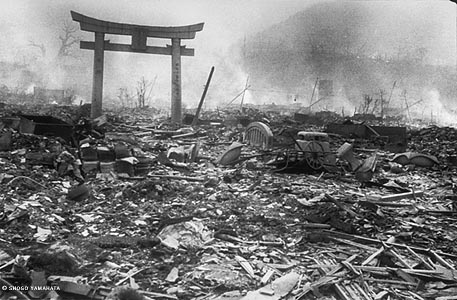I’ve been meaning to take note of the Directors’ Guild’s recent triumph over insurgent customers for a few days now:
A federal judge has issued final cut to studios, ruling that companies that snip out potentially offending material from movies for home viewing violate copyright laws.
Businesses that edit sex, profanity and violence out of DVD and VHS copies in an appeal to some viewers’ tastes are illegitimate,
said Richard P. Matsch of U.S. District Court in Denver.
Four companies that do so must stop and turn over their copies of expurgated films to Hollywood’s major studios.
Audiences can now be assured that the films they buy or rent are the vision of the filmmakers who made them and not the arbitrary choices of a third-party editor,
Directors Guild of America President Michael Apted said in a statement.
The studios and several prominent directors — including Steven Spielberg, Robert Altman and Steven Soderbergh — have been fighting movie sanitizers in court since 2002, saying that retailers such as CleanFlicks had no right to copy and distribute their own versions.
Retailers asserted that their cleaned-up copies made fair use of the movies under copyright law and that they bought one copy of the original for each modified version they rented or sold. That ensured more sales and exposure than such movies would have received had they not been edited to be more wholesome, the retailers argued.
We’re disappointed,
CleanFlicks Chief Executive Ray Lines said. This is a typical case of David versus Goliath, but in this case, Hollywood rewrote the ending. We’re going to continue to fight.
As many as 90 video stores nationwide — about half of them in Utah, where CleanFlicks is based — purchase movies from his company, Lines said.
The owner of the four CleanFlicks shops in Utah County, Daniel Thompson, told the Deseret Morning News of Salt Lake City: I think it’s ridiculous that you can’t watch a movie without seeing sex, nudity or extreme violence. I don’t understand why they’re trying to keep that in there.
The dispute is about artistic integrity, said Apted, who directed Coal Miner’s Daughter.
Directors put their skill, craft and often years of hard work into the creation of a film,
he said in the statement. So we have great passion about protecting our work, which is our signature and brand identification, against unauthorized editing.
— Roger Vincent, Los Angeles Times (2006-07-10): Sanitizers
of Home Video Lose in Court
My God, it’s a good thing we have the federal courts there to stand athwart our DVD players shouting No!
If the judicial branch of the government weren’t there to keep customers from going around watching films any old way they want–if the federal judiciary weren’t there to force Mormon families to look at boobies and guns the way the Directors’ Guild authorized them to do–then who would? It’d be mere anarchy!
The latest technological weapons may have been taken out of the hands of viewers, but it is still a dangerous world for artistes. Viewers will find all kinds of improvised devices for skipping over sex and violence. Perhaps with faith and perserverance the Directors’ Guild can convince the courts to further protect their artistic vision, by having all the fast-forward buttons in America stuck in place with super-glue.
(Hat tip to Tom Woods at the LRC Blog.)
